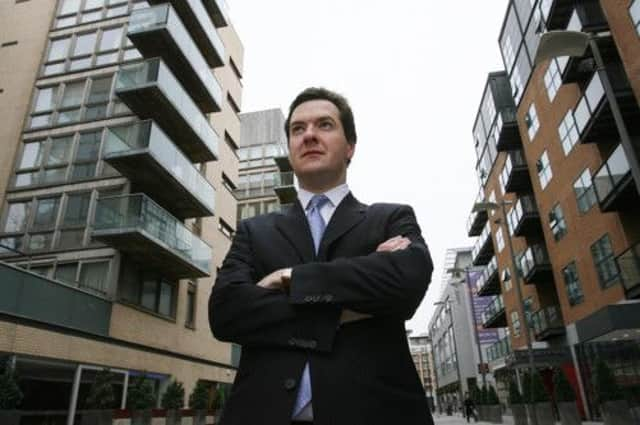Leaders: Osborne fuels fiery independence debate


So it could hardly be a surprise that a speech by Chancellor George Osborne in Aberdeen today would reignite SNP passions. The party’s response to pre-briefings on the speech was immediate and angry. Mr Osborne’s central claim is that the oil industry has benefited from being part of a single UK economy. He is also expected to talk of the “certainty” provided by the UK over the tax breaks oil firms can expect over the coming years.
Few assertions are more likely to goad the SNP than this. Finance secretary John Swinney lost no time in accusing the Chancellor of “breathtaking rank hypocrisy”, pointing out that it was Mr Osborne’s decision in 2011 to slap a £2 billion tax raid on oil companies that put investment on hold. While he was obliged to make a U-turn, the move unsettled the industry and dented his credibility. So it is not just with the SNP but with the legacy of his previous actions that he will have to battle.
Advertisement
Hide AdAdvertisement
Hide AdMany of the points the Chancellor will make are familiar, and the SNP will have its formal response in the White Paper on independence. However, both sides in the debate need to be reminded that the projected bounty of North Sea oil needs to be treated with caution. Since the beginning of devolution, oil revenues have fluctuated from almost £12.9bn to less than £2.6bn, while forecasts of future oil revenues by the independent Office of Budget Responsibility suggest Scotland would face a £4bn hole in its budget by 2016-17. But facts and forecasts are only part of the story. It is what conclusions we draw from them that matters.
Mr Osborne will also cite figures showing that Scots would have to pay £3,800 a head to pay for the £20bn of decommissioning of oil installations to which the UK government is committed, compared with £300 a head if the costs are shared by the UK population as a whole. There will also be a list of projects that he says have benefited from the government’s support. Mr Swinney counters that Scotland has paid more in taxes per person in each and every one of the last 30 years. And with up to 24 billion barrels of oil left, worth an estimated £1.5 trillion, it will continue to contribute to the wealth of Scotland for a long time to come.
We will hear much more of this in the months ahead. But the greatest need across the oil industry now is certainty over the tax regime in the immediate future. And here the Chancellor has a special obligation, after having raised North Sea taxes, to say what he means and mean what he says when he speaks about the need for “certainty”. Investment critically depends on rebuilding his credibility. Beyond that, the SNP must explain how it too can provide certainty were it to win the independence referendum.
Strictly beween ourselves
A warm and memorable summer has drawn to a close. The nights are fair drawing in. Deep uncertainty looms over the Middle East. A US military strike against Syria awaits congressional approval. Troubled economies in the euro-zone apprehensively await the outcome of the German election.
But, hey, Strictly Come Dancing is back on our TV screens on Saturday. Few national diversions have been as sustained and successful as this. For weeks we will be held in thrall by frenetic foxtrots, rumbustious rumbas, tumultuous tangos and high five jiving. Meals will be disrupted and suppers burnt. Dancing shoes will move as if charged with a thousand volts, and breathtaking costumes will sparkle and glitter through the dark winter evenings. We will boo and cheer the judges’ summations and their scores as if no other issue is more important than who goes forward to the next round. It’s not supposed to be taken seriously. Want a bet?
Strictly has become a national cult. It may have encouraged many to take up dancing but millions more will fantasise that they are getting slimmer on the sofa just by watching it. Stars include Vanessa Feltz, Countdown’s Rachel Riley, golf legend Tony Jacklin, BBC Breakfast presenter Susannah Reid and Dragon’s Den star Deborah Meaden. No-one can tell how these celebrities will do, whether they will play it for laughs like John Sergeant or take it deadly seriously like Louis Smith. But that is the show’s charm, and its attraction. For the sake of household harmony, those who are Strictly sceptics should surrender control of the TV remote well in advance. Failure to do so may result in a fatal tango.